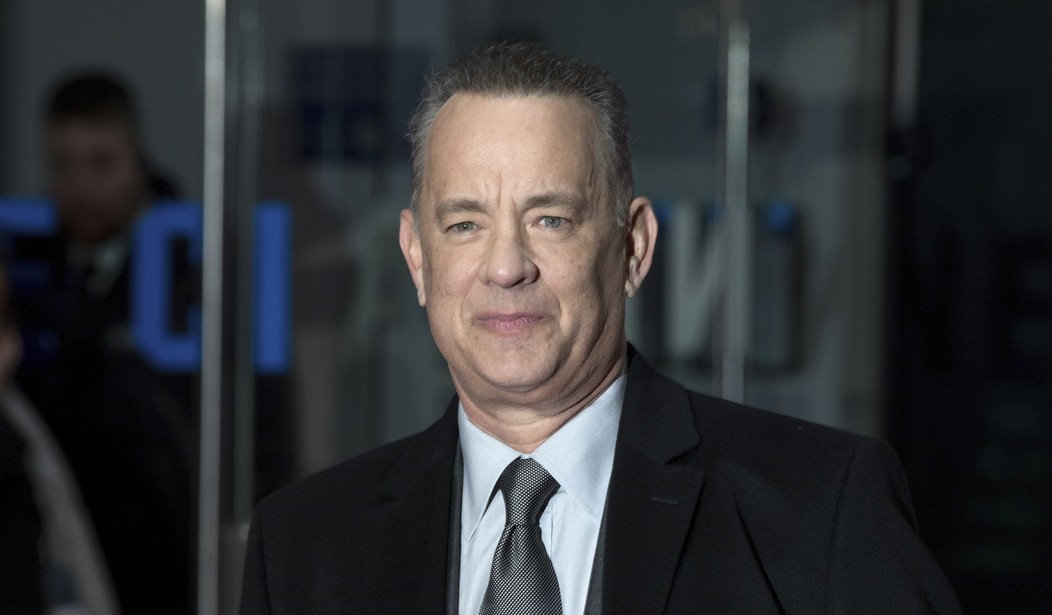Actor Tom Hanks won Oscars for his roles in Philadelphia and Forrest Gump, but he shouldn’t have been cast in the former and says the latter would never be made today.
“Let’s address ‘Could a straight man do what I did in Philadelphia now?'” Hanks told New York Magazine in an interview. “No, and rightly so. The whole point of Philadelphia was don’t be afraid. One of the reasons people weren’t afraid of that movie is that I was playing a gay man. We’re beyond that now, and I don’t think people would accept the inauthenticity of a straight guy playing a gay guy.”
That’s a rather bizarre take. Has society become so politically correct that we’ve lost sight of the fact that acting is all about pretending?
Last year, actress Sarah Silverman had a hissy fit over the announcement that Catholic actress Kathryn Hahn would be portraying Jewish actress and comedienne Joan Rivers in a planned biopic miniseries.
“There’s this long tradition of non-Jews playing Jews, and not just playing people who happen to be Jewish, but people whose Jewishness is their whole being,” Silverman claimed. “One could argue, for instance, that a gentile playing Joan Rivers correctly would be doing what is actually called ‘Jewface.'” The biopic ultimately was shelved, but Silverman has since joined the cast of another biopic, this one about Leonard Berstein, in which non-Jewish actor Bradley Cooper will play the late Jewish conductor — complete with prosthetic schnoz. I guess attitudes change when there’s a paycheck involved.
We’ve come a long way from the days of blackface in cinema, minstrel shows, and Mickey Rooney’s portrayal of Mr. Yunioshi in Breakfast at Tiffany’s, but is this notion that actors and actresses must accurately reflect certain aspects of their character to play them “authentically” too much of an overcorrection?
So, where does this quest for authenticity in Hollywood end? Should Tom Hanks not have been allowed to play Jim Lovell in Apollo 13 because Hanks isn’t an astronaut? Should he have not played Captain John H. Miller in Saving Private Ryan because he’s not a veteran and couldn’t authentically play someone in the armed services? Should Hanks have not voiced the character of Woody the Cowboy in the Toy Story movies because he’s human and not a wooden toy?
The first movie I ever saw Tom Hanks in was Big, in which he played a 12-year-old boy from New Jersey who’d transformed into an adult after making a wish on a carnival machine. Tom Hanks comes from the West Coast. Should a Jersey-born actor have been chosen instead? Maybe a really mature-looking 12-year-old should have been selected instead because how could an adult actor portray a pre-teen?
Oh wait, that’s what acting is. Last I checked anyway. Acting is pretending — literally. Hanks has become a celebrated actor for his talent in taking roles and convincing the audiences that he’s an astronaut, an army captain, or a 12-year-old trapped in a man’s body. It seems that Hollywood, of all places, should understand this. Nothing about Hollywood is authentic because it’s people pretending for entertainment. Audiences understand that. Mostly, anyway.
Some people seemed upset that Freddie Mercury wasn’t played by an LGBT actor in Bohemian Rhapsody, even though it’s hard to imagine anyone but Rami Malek crushing that role. Some roles fit certain actors or actresses better than others — regardless of religion, sexuality, nationality, or whatever. Sometimes talent or star power matters far more than whether the actors check off the same diversity boxes.
But if this is the way Hollywood is trending, what does that mean for the entertainment industry? I can’t say for sure, but I dare say it’s not good.










